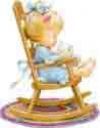|
ESL Forum:
Techniques and methods
in Language Teaching
Games, activities
and teaching ideas
Grammar and
Linguistics
Teaching material
Concerning
worksheets
Concerning
powerpoints
Concerning online
exercises
Make suggestions,
report errors
Ask for help
Message board
|
ESL forum >
Ask for help > help with countables/ uncountables
help with countables/ uncountables
|

WestHampstead

|
help with countables/ uncountables
|
Hello
I explained the difference between countable and uncountable nouns to my students but they still find it difficult to distinguish them as it is different in their languages which are Catalan and Spanish. Could you help me with that please? how do you explain it?
THANKS!
|
6 Apr 2011
|
|
|
|

Zora

|
That �s strange... I �ve never had a problem with explaining this. Uncountable and countable nouns are almost the same in one language as the other. I think that as a "native" Spanish speaker you neglect to see that "Natives are lazy in their way of using language"...
ALL liquids... coffee, soup, water, oil, juice, etc.. are uncountable - in English and Spanish. The idea of going into a bar and asking for "Dos cafes" (two coffees) or "Dos aguas" (two waters) is a typical "laziness" in a language. You are asking for a bottle of water and a cup of coffee since the waiter can �t bring you these liquids in any other way.
Meat, cheese, grains, coffee, sugar, rice, fruit (in general, not specific) is bought by weight, therefore it is uncountable... same as in Spanish.
Then... you have things that go both ways like chicken which can be bought whole or by weight, cheese could also fall into this category as well as "glass" which could be the object or the material.
|
6 Apr 2011
|
|
|

Olindalima ( F )

|
Hi Linda
Thanks for the lesson
So, you consider asking
" Two coffees, please " is not correct, is it ?
Better is " Two cups of coffee " ( ? is it ? )
Sounds so miserable and, at the same time , so strutting, so old fashion, when compared to our language. LOL
Waiting for your answer, checking if I got it. I have been telling my kids that coffee, real and good and strong one always has to get double FF and double EE and though uncountable, in general, tht one can ask 2 coffees, NOW, SHAME ON ME, what am I going to say in the future.
" Children, be very polite, don �t ask 2 coffees, ask 2 cups of that thing " LOL
EsL teachers , sometimes, and only some of them, are a real disaster
Big hugs
The other one
( can I say this , in English ? - in Portuguese , the other one is always the one that is not married, but gets someone �s husband , for FREEEEEEEEEE )
LInda
|
7 Apr 2011
|
|
|

Apodo

|
|
At home or in a cafe we say:
I �ll have a beer
I �ll have an orange juice etc.
Two coffees, please. Because it is understood we mean a cup/glass
But if I go to the supermarket
I �ll buy some orange juice, a carton/bottle of orange juice.
Hmmm.... I haven �t heard a saying to match this:
( can I say this , in English ? - in Portuguese , the other one is always the one that is not married, but gets someone �s husband , for FREEEEEEEEEE )
We say the other woman, his bit on the side, meaning the one who is not his wife.
|
7 Apr 2011
|
|
|
|
|